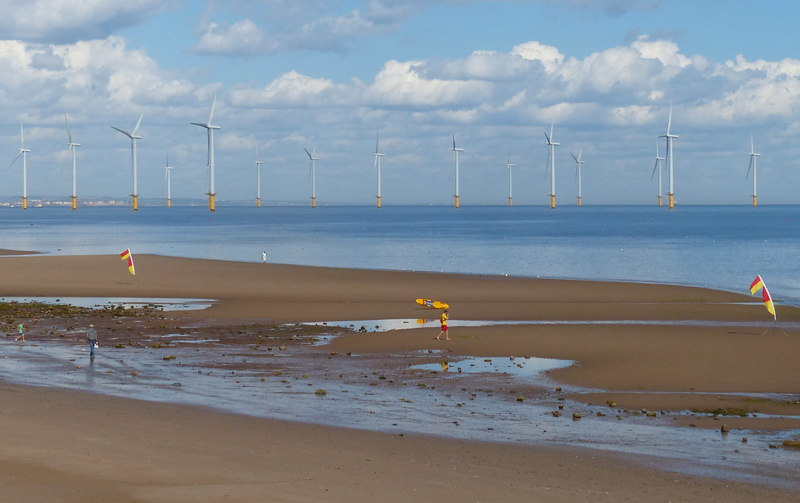Researchers inform ambitious roadmap to a zero carbon UK

Researchers from the University of Leeds have contributed to the first-ever detailed roadmap for a fully decarbonised nation.
The Sixth Carbon Budget (2033-2037), published today by the Climate Change Committee (CCC), draws on Leeds’ expertise to chart the decisive move to zero carbon for the UK.
Research conducted by Professor Peter Taylor, Chair in Sustainable Energy Systems, and Priestley Climate Scholar Alice Garvey as part of the Centre for Research into Energy Demand Solutions (CREDS), informed the report’s consideration of policy options to decarbonise industry.
Professor John Barrett, Professor of Energy and Climate Policy, led a team of researchers that estimated emissions from UK consumption – those associated with imported goods and services.
A separate report published alongside the budget advice examines the role of local government, drawing heavily on research by Professor Andy Gouldson, Professor of Environmental Policy.
University of Leeds research has contributed heavily to this important world first: a national net-zero plan
This contribution follows significant input into last year’s Net Zero report that underpinned the groundbreaking commitment from the UK government made to reduce greenhouse gas emissions to net-zero by 2050.
Director of the Priestley International Centre for Climate, Professor Piers Forster, is a member of the CCC, which is the UK’s independent adviser on tackling climate change.
Professor Forster said: “University of Leeds research has contributed heavily to this important world first: a national net-zero plan.
"In particular, it ensured that we took a systems approach to energy decarbonisation and it helped us take delivery plans to the next level by looking at the role of actors at different scales.”
In this new 1,000-page landmark report, the CCC sets out the path to that goal over the next three decades, including the first ever detailed assessment of the changes that will result – and the key milestones that must be met.
It shows that polluting emissions must fall by almost 80% by 2035, compared to 1990 levels – a big step-up in ambition. Just 18 months ago this was the UK’s 2050 goal.
To deliver this, a major investment programme across the country must be delivered, in large measure by the private sector. That investment will also be the key to the UK’s economic recovery in the next decade.
The Sixth Carbon Budget is a chance to jump-start the UK’s economic recovery
In many areas, this gives people real savings, as the nation uses fewer resources and adopts cleaner, more-efficient technologies, like electric cars, to replace their fossil-fuelled predecessors.
The CCC finds that these savings substantially reduce the cost of Net Zero compared with previous assessments: now down to less than 1% of GDP throughout the next 30 years.
Climate Change Committee Chairman, Lord Deben, said: “The Sixth Carbon Budget is a clear message to the world that the UK is open for low-carbon business. It’s ambitious, realistic and affordable. This is the right carbon budget for the UK at the right time.
“As we emerge from the COVID-19 pandemic, the Sixth Carbon Budget is a chance to jump-start the UK’s economic recovery. Anything less would shut us out of new economic opportunities. It would also undermine our role as President of the next UN climate talks.”
The CCC’s message to Government is clear: the 2020s must be the decisive decade of progress and action on climate change. If the CCC’s recommendations are adopted by Ministers next year, the Sixth Carbon Budget will position the UK as a true global climate leader, as it prepares to host heads of state for the next major climate summit in Glasgow.
Further information:
The Committee’s report The Sixth Carbon Budget: The UK’s path to Net Zero, in three parts, is now available on the CCC’s website
Main image: Redcar Sands and Teesside wind farm | Copyright Mat Fascione
For additional information contact the University of Leeds press office at pressoffice@leeds.ac.uk
